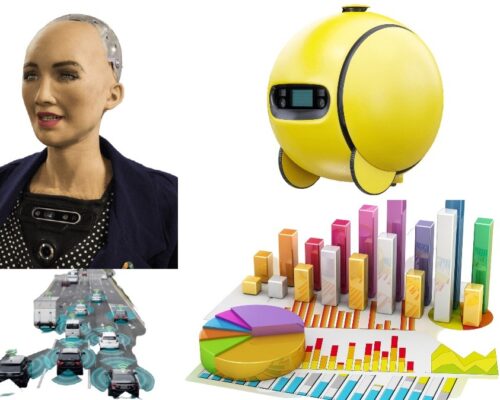
About Us
Artificial Intelligence and Data Science (AIDS) is the science and Engineering of making Intelligent Machines, especially intelligent computer Programs. AIDS is an interdisciplinary branch of science, engineering and technology creating a complete ecosystem and widely used in almost every sector of the technical industry, academics and research. Artificial Intelligence and Data Science is the future of technology which are rapidly changing the world at very high rate. The basic objectives of this course is to train students with the next age of Intelligence and analytics generated by machines, influencing the human lives to help improve efficiencies and augment human capabilities, influencing consumer products with significant breakthroughs in healthcare, manufacturing, finance and retail industries.
PROGRAM EDUCATIONAL OBJECTIVES
Utilize their proficiencies in the fundamental knowledge of basic sciences, mathematics,
Artificial Intelligence, data science and statistics to build systems that require management
and analysis of large volumes of data.
Advance their technical skills to pursue pioneering research in the field of AI and Data
Science and create disruptive and sustainable solutions for the welfare of ecosystems.
Think logically, pursue lifelong learning and collaborate with an ethical attitude in a
multidisciplinary team.
Design and model AI based solutions to critical problem domains in the real world.
Exhibit innovative thoughts and creative ideas for effective contribution towards economy
building.
PROGRAM OUTCOMES
Engineering knowledge:
Apply the knowledge of mathematics, science, engineering
fundamentals, and an engineering specialization to the solution of complex engineering
problems.
Problem analysis:
Identify, formulate, review research literature, and analyze complex
engineering problems reaching substantiated conclusions using first principles of
mathematics, natural sciences, and engineering sciences.
Design/development of solutions:
Design solutions for complex engineering problems and
design system components or processes that meet the specified needs with appropriate
consideration for the public
Conduct investigations of complex problems:
Use research-based knowledge
and research methods including design of experiments, analysis and interpretation of data,
and synthesis of the information to provide valid conclusions.
Modern tool usage:
Create, select, and apply appropriate techniques, resources, and
modern engineering and IT tools including prediction and modeling to complex engineering
activities with an understanding of the limitations.
The engineer and society:
Apply reasoning informed by the contextual knowledge to
assess societal, health, safety, legal and cultural issues and the consequent responsibilities
relevant to the professional engineering practice.
Environment and sustainability:
Understand the impact of the professional engineering solutions in societal and environmental contexts, and demonstrate the knowledge of, and need for sustainable development.
Ethics:
Apply ethical principles and commit to professional ethics and responsibilities and
norms of the engineering practice.
Individual and team work:
Function effectively as an individual, and as a member or
leader in diverse teams, and in multidisciplinary settings.
Communication:
Communicate effectively on complex engineering activities with the
engineering community and with society at large, such as, being able to comprehend and write
effective reports and design documentation, make effective presentations, and give and receive
clear instructions.
Project management and finance:
Demonstrate knowledge and understanding of the
engineering and management principles and apply these to one’s own work, as a member and
leader in a team, to manage projects and in multidisciplinary environments.
Life-long learning:
Recognize the need for, and have the preparation and ability to
engage in independent and life-long learning in the broadest context of technological change.
PROGRAM SPECIFIC OUTCOMES
Evolve AI based efficient domain specific processes for effective decision making in several
domains such as business and governance domains.
Arrive at actionable Foresight, Insight, hindsight from data for solving business and
engineering problems
Create, Select and Apply the theoretical knowledge of AI and Data Analytics along with
practical industrial tools and techniques to manage and solve wicked societal problems
Develop Data Analytics and Data Visualization Skills, skills pertaining to knowledge acquisition,
knowledge representation and knowledge engineering, and hence be capable of coordinating
complex projects.
Able to carry out fundamental research to cater the critical needs of the society through
cutting edge technologies of AI.
VISION
VISION
To be a leading center of excellence in Artificial Intelligence and Data Science, driving innovation and creating solutions that transform industries and improve the quality of life globally.
MISSION
MISSION
Provide High-Quality education and training to equip students and professionals with the skills needed to excel in AI and Data Science. Address societal impacts and work towards solution that benefit all segments of society.

